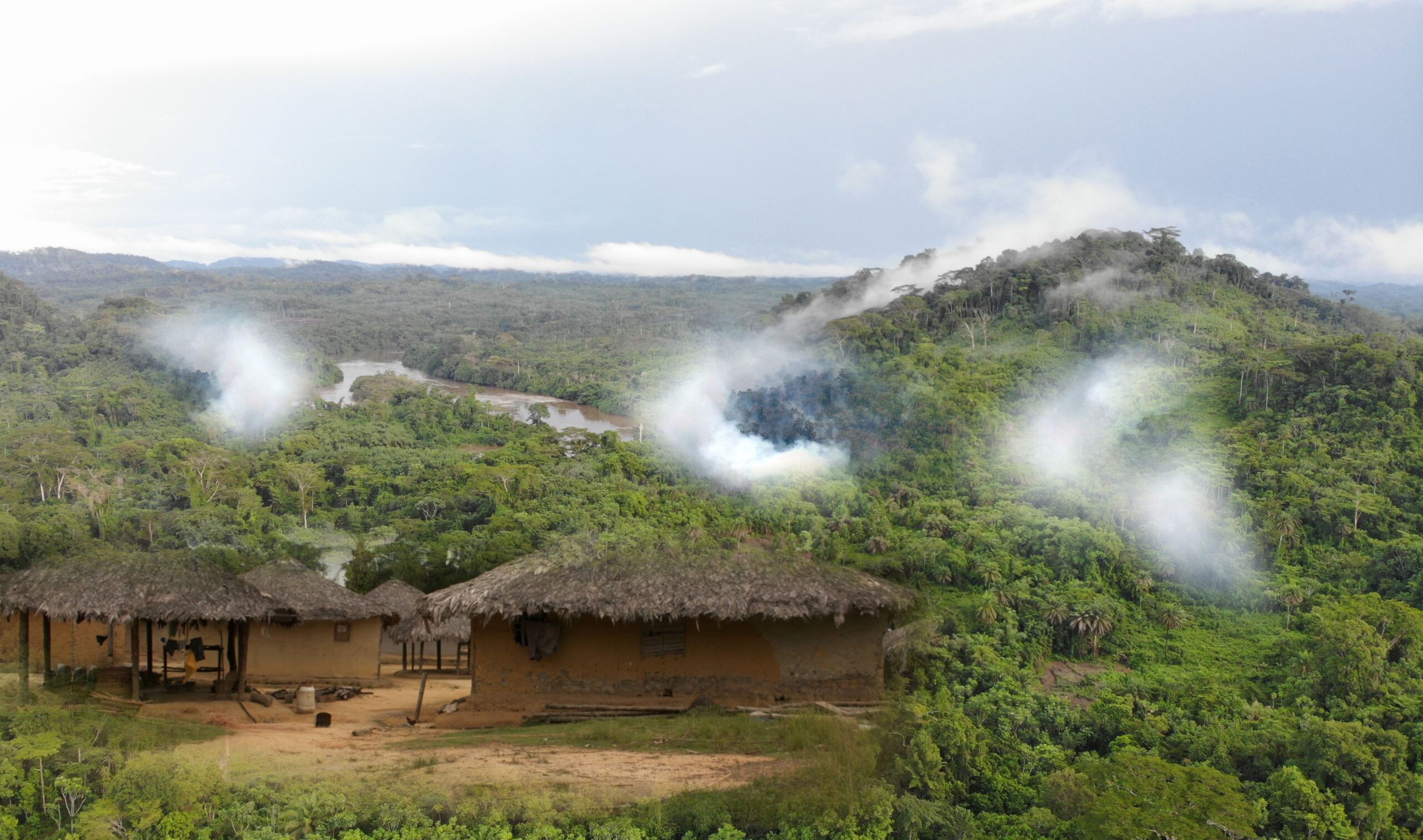Top: A forest and a village in River Cess County. Pictures by William Q. Harmon and Derick Snyder Graphic by Rebazar Forte
By Esau J. Farr
MONROVIA – The Liberian People’s Party (LPP) of Cllr. Tiawan Gongloe has called on the government of Liberia to discontinue a carbon credit deal with Blue Carbon of the United Arab Emirates (UAE), as the agreement fails to recognize the rights of indigenous people and exceeds the area threshold for a forestry concession.
“Blue Carbon must therefore discontinue negotiation with the government of Liberia until it is presented with evidence that would-be affected communities have given their free, prior, and informed consent as required under Liberian law,” the party said in a statement on Tuesday.
“The Government has an obligation to protect the land rights of customary communities across the country – entering into this agreement with Blue Carbon would contravene that sacred responsibility,” the statement added.
The Ministry of Information Cultural Affairs and Tourism did not immediately respond to queries for comments.
In March this year, Liberia signed a US$50 billion memorandum of understanding (MoU) with Blue Carbon to implement carbon removal projects on more than 1 million hectares of Liberia’s rainforests for 30 years.
“We are honored to sign this MoU with The Republic of Liberia,” said Sheikh Ahmed Dalmook Al Maktoum, Blue Carbon’s chairman.
“This bilateral association marks another milestone for Blue Carbon to enable government entities to define their sustainable frameworks and help transition to a low-carbon economical system…,” he added. Blue Carbon’s mission is to use bilateral agreements to help governments and UAE-based firm’s clients achieve a de-carbonized economy in line with the Paris Climate Agreement, according to its website.
Minister of Finance and Development Planning Samuel Tweah, Jr. stated the deal would help Liberia prevent forest degradation and deforestation. “We are confident that this collaboration is another step forward for us to mark an era of sustainability…,” Tweah said. (President George Weah proposed to the United Nations climate conference in Scotland in 2021 the establishment of an African Carbon Credit Trading Mechanism.)
But the deal would violate a number of Liberian laws, including on land and forestry as it fails to recognize local communities’ rights.
Under Liberia’s Land Rights Act, communities have the right to control the use, protection, management and development of forest resources. The law guarantees local communities’ right to consent.
A draft of the MoU, seen by The DayLight, has provisions for local communities’ consent but after the agreement would have been signed.
That is a red flag, as the consent principle, emphasizes the participation of the indigenous people prior to an agreement. It is a major pillar of the United Nations Declaration on the Rights of Indigenous Peoples, which Liberia signed into Law.
Also, one million hectares of land would contravene the National Forestry Reform Law, which restricts a forestry concession to 400,000 hectares.
“Allocating one million hectares under a single contract and including communities’ customary land in [the] said contract would violate the forestry law,” the party, vying to unseat the government in October, said.
On Monday, a group comprising several civil society organizations, the Independent Forest Monitoring Coordination Mechanism, also criticized the deal.
It expressed concern over the Blue Carbon MoU’s possible breach of a 2014 climate agreement between Liberia and Norway, which requires to halt deforestation nationwide for US$150 million.
Under the deal, Liberia would give Blue Carbon exclusive rights to manage several protected areas and proposed protected areas. That includes the Sapo National Park and the Krahn Bassa Proposed Protected Area. The firm would singlehandedly run reforestation, ecotourism and conservation programs, and trade carbon credits.
“The status of that agreement is currently unclear given the Norway funds have not been fully utilized and the agreement remains in effect until 2025,” the group said.




